- Home
- Advertising
- Madison Avenue
- 25 Nike Ads That Shaped The Brand's History
25 Nike Ads That Shaped The Brand's History
The Very First 'Just Do It' Ad (1988)

Michael Jordan Teams Up With Spike Lee's Mars Blackmon (1988)
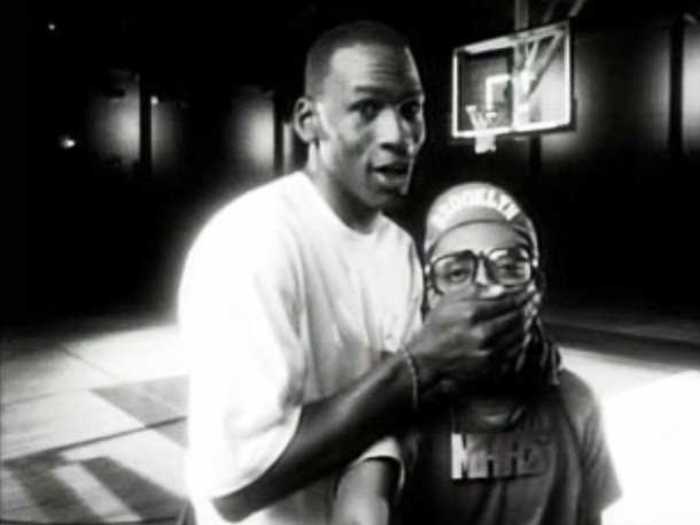
In 1988, Nike launched the first of a series of commercials starring Michael Jordan and Spike Lee, neither of whom had yet reached superstar status in their respective fields.
Mars Blackmon, Lee's over-caffeinated fanboy character, elicited laughs with his complete lack of self-awareness, and Jordan's comparative cool helped him win over a generation of basketball fans.
The iconic, black-and-white ads cemented the Air Jordan shoe's place in the national consciousness as both a fashion statement and a collectors' item. "Money, it's gotta be the shoes!"
Bo Knows (1989)
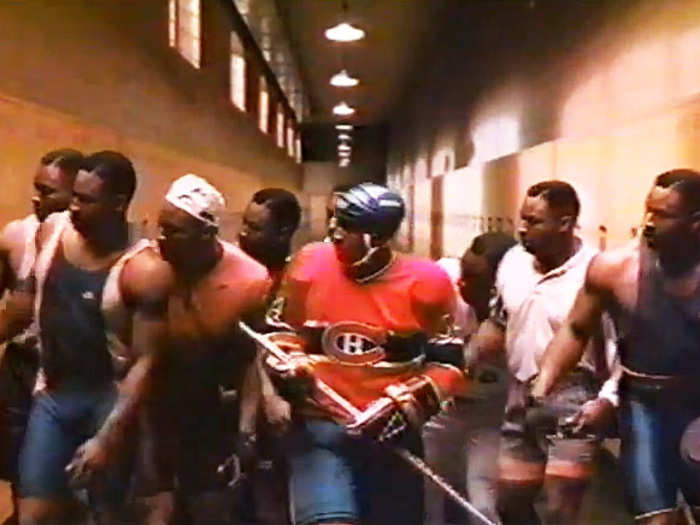
For a one-of-a-kind athlete, Wieden + Kennedy needed a one-of-a-kind ad campaign.
Wieden + Kennedy highlighted Bo Jackson's versatility as both a professional football and baseball player in a series of ads based on the premise that Jackson's skills extended well beyond his two sports of choice.
The "Bo Knows" series yielded one of the most memorable commercials of all time, which used special effects to treat viewers to a room full of Bo Jacksons clad in various ridiculous sporting outfits. More importantly for Nike, the ads dramatically improved the company's cross-trainer sales, helping it regain its position as America's biggest athletic shoe company.
Andre Agassi And The Red Hot Chili Peppers In Rock 'N Roll Tennis (1991)
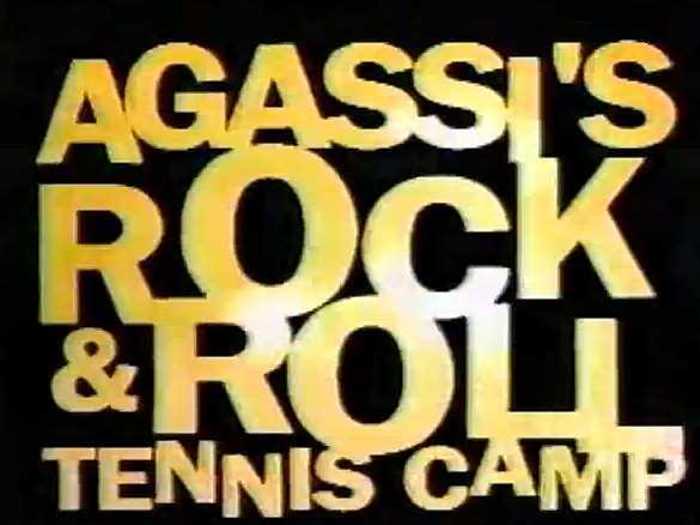
Welcome to the 1990s, y'all!
Andre Agassi, a new, more rebellious brand of tennis star, takes center stage playing tennis in what appears to be a combination space ship/Red Hot Chili Peppers concert.
It just goes to show that even a brilliantly constructed brand like Nike can fall victim to the sometimes unfortunate whims of the zeitgeist.
Charles Barkley Is Not A Role Model
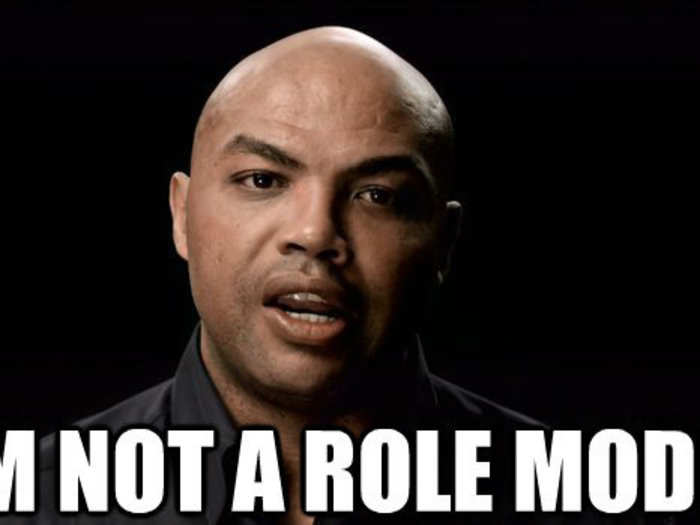
"Just because I can dunk a basketball doesn't mean I should raise your kids."
With those words, Phoenix Suns power forward Charles Barkley drew a line in the sand between himself and Nike's other top basketball pitchman, the clean-cut, kid-friendly Michael Jordan. In declaring Barkley "not a role model," Nike showed there was room under its umbrella for more than one kind of superstar.
The ad helped Nike establish itself as a brand with a somewhat edgy sense of authenticity.
Dennis Hopper Sees Barry Sanders In His Sleep (1994)
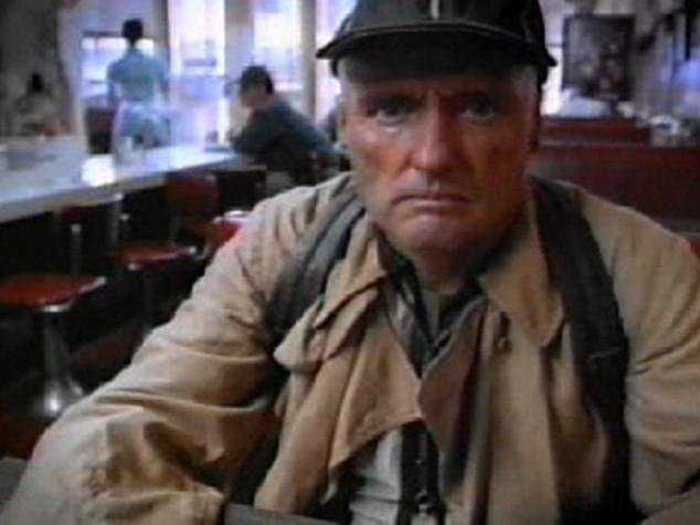
Nike continued to bring in stars from the entertainment world with a series of ads featuring the actor Dennis Hopper.
Hopper played a football referee driven crazy by all the insane action of the National Football League.
Watch him describe the sorcery Barry Sanders used to evade would-be tacklers below:
Agassi And Sampras Take It To The Street (1995)
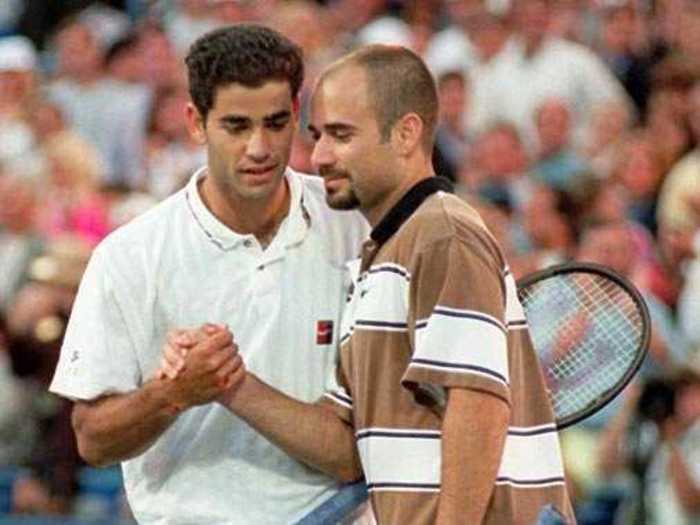
Nike showcased one of the most epic rivalries in tennis history, by putting together what ESPN called one of the best 25 sports ads of all time.
In "Guerrilla Tennis," stars Andre Agassi and Pete Sampras set up an impromptu court in the middle of New York City and start a furious rally in front of awed onlookers.
'If You Let Me Play' And Title IX (1995)
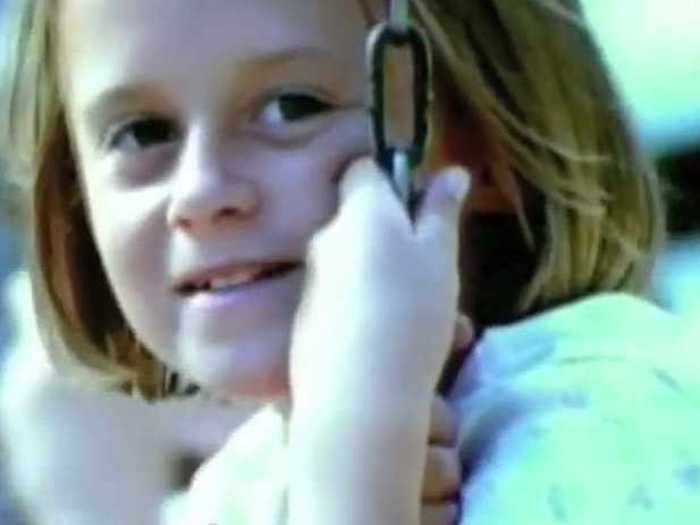
Four years before Brandi Chastain took off her shirt to celebrate at the 1999 World Cup, bringing women's soccer to the forefront, Nike rolled out its "If You Let Me Play" ad aimed at female consumers.
In the spot, little girls appear on camera stating facts about the benefits of sports participation, including less risk of encountering health problems and a greater likelihood of leaving abusive partners.
Lil' Penny (1995)
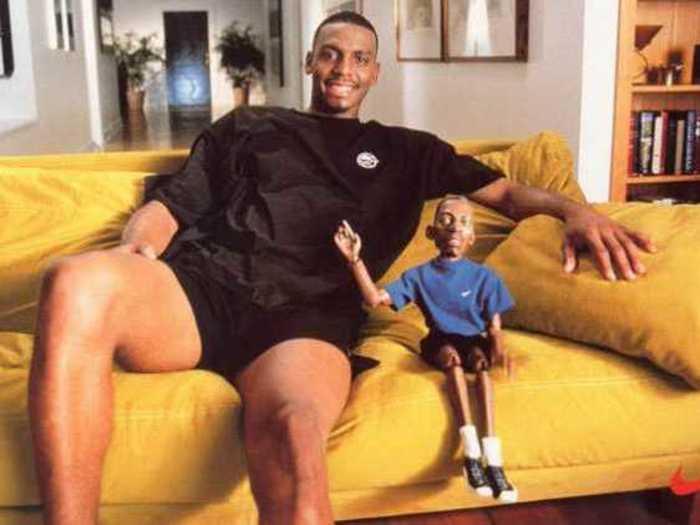
While it's hard for some to fathom Michael Jordan as anything beside one of the most famous (and popular) people on the planet, his first Nike commercials came out five years before he won his first championship.
And just like Nike scooped up Spike Lee a year before he made the all-time classic "Do the Right Thing," Nike's first foray into puppet ads is highlighted by the performances of a former SNL cast member coming off a string of appearances in poorly-performing movies and TV shows.
Two years after he started voicing a miniature figure of Orlando Magic guard Anfernee "Penny" Hardaway for Nike, Chris Rock released "Roll With the New" and won the first of three Grammy Awards.
Junior For President (1996)
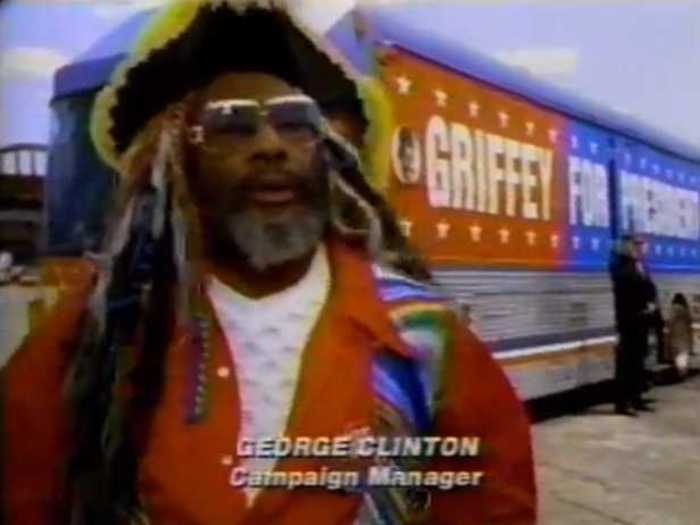
Nike demonstrated its playfulness on the back of perhaps its most likable star to date, baseball's Ken Griffey Jr.
The "Griffey in '96" campaign trumpeted Junior's popularity under the pretense of a political campaign that highlighted his sweet swing and winning smile.
Alongside his trusty running mate, Mariners Moose, Griffey's presidential run came replete with bumper stickers and this faux news story, featuring commentary from famous political minds on both sides of the aisle.
Also, Griffey's "campaign manager" was George Clinton, so that's pretty great.
Hello, World! (1996)
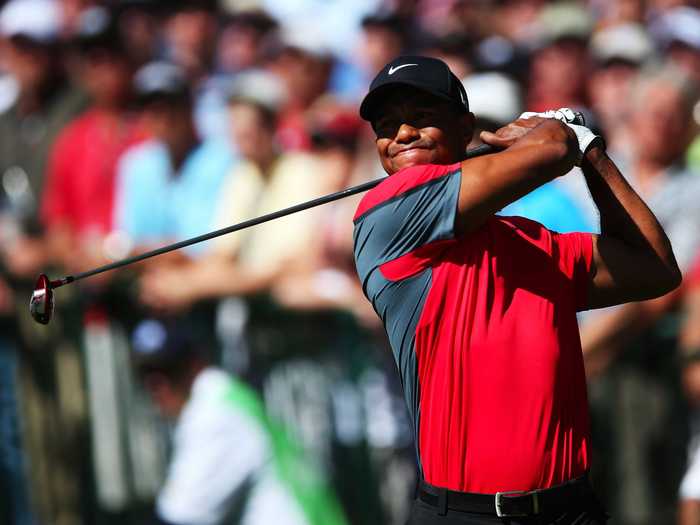
"I've heard I'm not ready for you...Are you ready for me?"
Those are the final lines of Nike's defiant introduction of Tiger Woods, the three-time defending U.S. amateur champion who had already generated plenty of buzz by the time he turned pro in 1996.
In an ad aptly titled "Hello World," Nike foreshadowed the dominance that was to come.
"Failure" And The Michael Jordan Underdog Myth (1997)
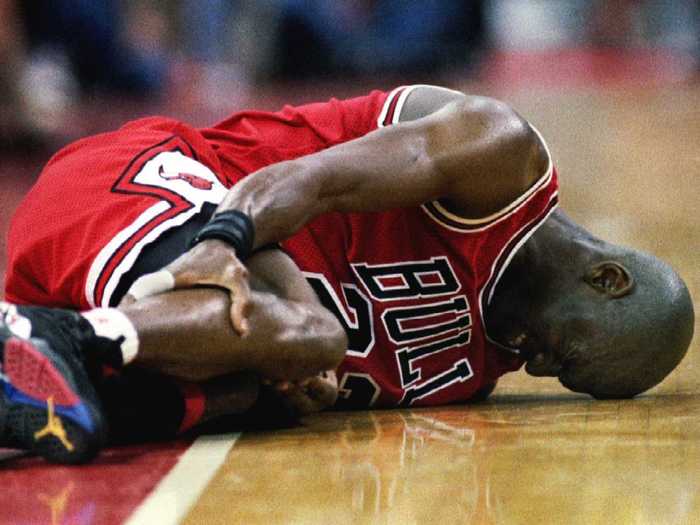
Michael Jordan was an extraordinarily successful basketball player at every level he ever played.
But through the clever framing of perceived sleights (the intellectually dishonest claim that he was "cut" from his high school basketball team, the indignation at being picked third in the NBA draft), Jordan and the brands he endorsed were able to position him as a paragon of virtue stemming from the underdog narrative they constructed and his pathological dedication to winning.
The 1997 ad "Failure" perfectly encapsulates the Jordan ethos, one that sells consumers on the idea that setbacks are unavoidable and success is only achieved through hard work (and, you know, the occasional dose of otherworldly physical gifts).
Chicks Dig The Longball (1998)
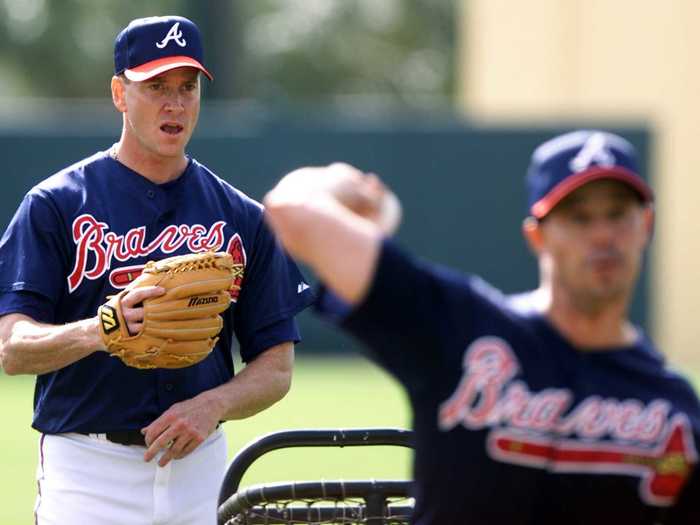
In the midst of the epic three-way chase for Roger Maris' single-season home run record, ultimately won by the St. Louis Cardinals' Mark McGwire, Nike found a clever way to showcase a pair of pitchers.
In the 1998 classic, Atlanta Braves aces Greg Maddux and Tom Glavine get jealous of the attention women give McGwire during his batting practice sessions, prompting a humorous training montage as the pair tries to beef up to hit home runs.
The ladies come around after the pitchers knock out a couple batting-practice dingers, prompting Maddux to utter the now-famous catchphrase to his teammate: "Chicks dig the longball."
Tiger Woods Shows Off (1999)
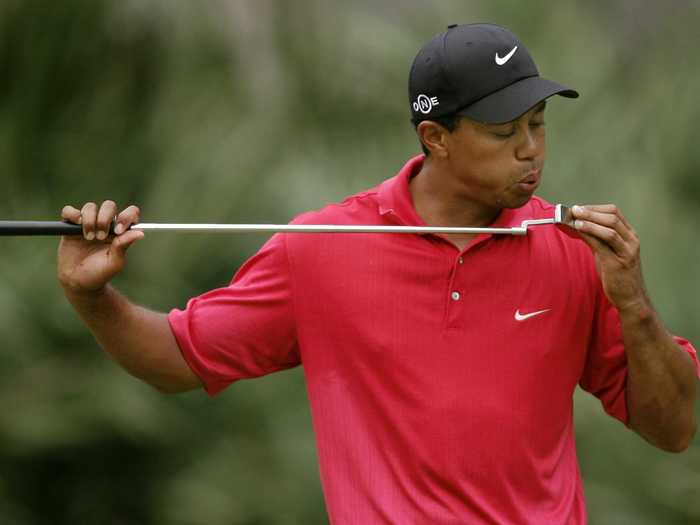
In 1999, Tiger Woods showed off his extraordinary coordination by bouncing a golf ball on his club and swatting it out of the air.
The idea for this spot came by happenstance when Woods was fooling around during a commercial shoot by playing hackey sack with his golf club.
The director on the shoot asked Woods to do it again for the camera, and Tiger nailed it on the fourth take. The resulting commercial was so popular that Nike chose to recreate the ad with Rory McIlroy earlier this year.
Hip-Hop Hits Mainstream In Nike Freestyle (2001)
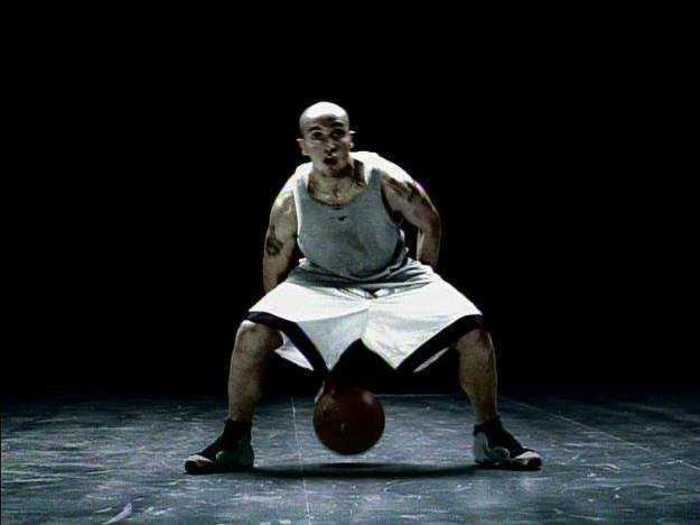
With a hip-hop soundscape composed of squeaking sneakers and bouncing basketballs, Nike's Freestyle ad is among the most sonically and visually striking it ever put out.
By meshing streetball legends with NBA stars, Nike perfectly reflected the assimilation of hip-hop into the mainstream that was taking place in American culture writ large.
In 2001, the year the ad debuted, the NBA's MVP (Allen Iverson) and Finals MVP (Shaquille O'Neal) were both part-time rappers, and hip-hop acts like OutKast and Ja Rule found massive commercial success with No. 1 singles.
Nike "Move" Wins An Emmy
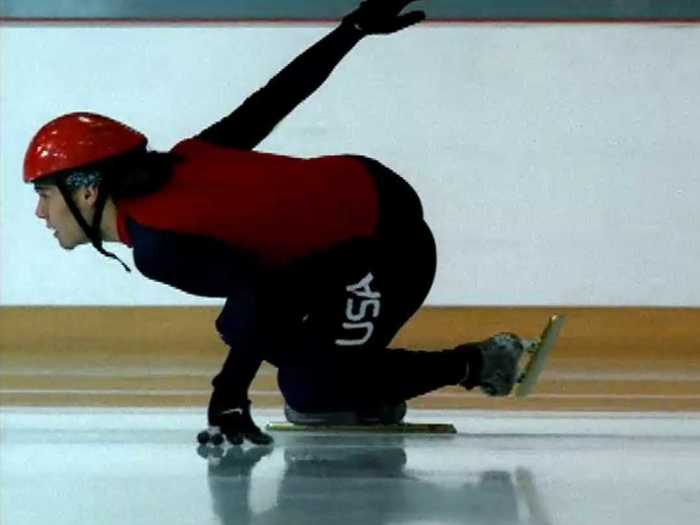
Nike won the second of its two Best Commericial Emmys for the 2002 ad, "Move," which uses a collection of professional and amateur athletes to display the sheer aesthetic beauty of human bodies in motion.
The way the athletes and their varied pursuits all flow into each other is something to see.
"Goodbye, Mars." (2003)
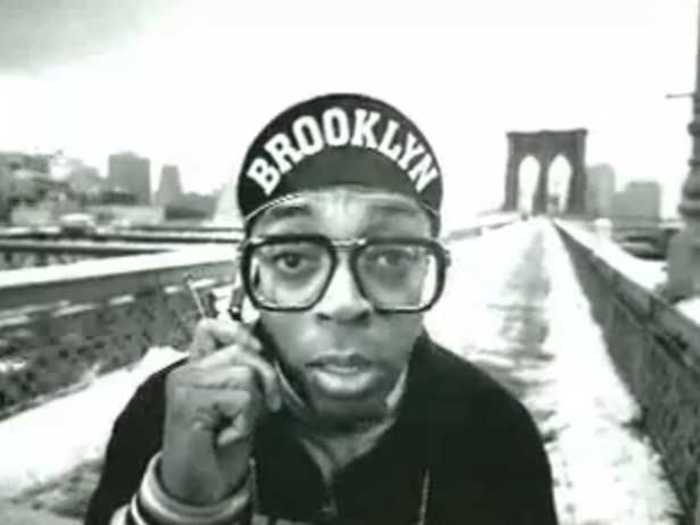
After being Nike's most recognizable face for the better part of two decades, Michael Jordan quit basketball for good in 2003 (as a player, anyway).
Nike commemorated Jordan's departure by taking it back to the beginning with his old pal, Mars Blackmon, badgering Jordan one last time.
The ad ushered in an era of Nike using Jordan's imprimatur to inspire a new generation of athletes and consumers to take flight.
Go Tell The World (2005)
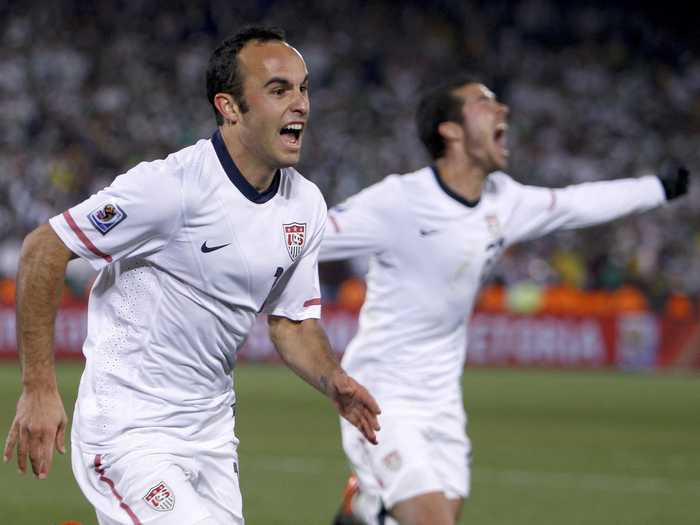
Though it has always made soccer cleats, Nike began its commitment to being a major player in the sport in advance of the 1994 World Cup, when it signed players from the Brazilian national squad that would go on to win the tournament.
As the game gained in popularity domestically, so too did Nike's commitment to marketing its soccer products to a U.S. audience. In 1997, Nike paid $200 million to sponsor the U.S. men's national team for the next 10 years.
In this 2005 ad, Nike challenges Americans dismissive of the game's comparative lack of domestic popularity, and rallies the sport's U.S. fans to "go tell the world" about U.S. soccer.
Nike Goes Viral With Ronaldinho (2005)
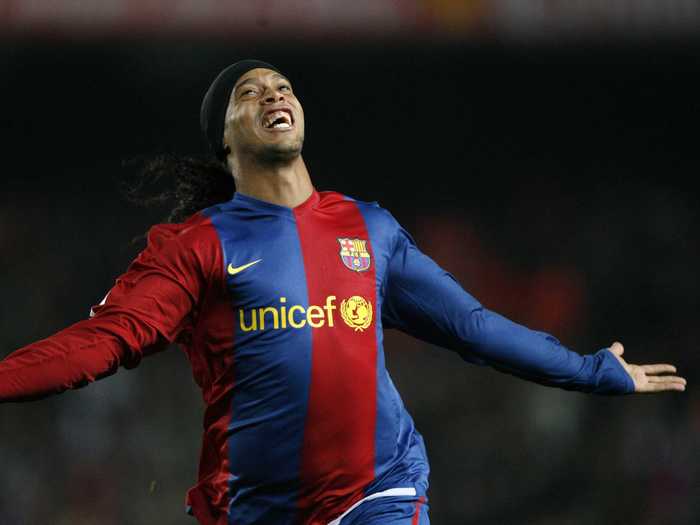
Nike scored one of the very first viral YouTube hits with this video of the Brazilian soccer star Ronaldinho.
The former FC Barcelona superstar passes the ball to himself off the crossbar four times in a row without letting it touch the ground.
Some believe that the clip involved CGI, but Nike successfully translated the formula it discovered the Tiger Woods trick shot ad into the YouTube era.
Jordan Takes On Elder Statesman Role (2006)
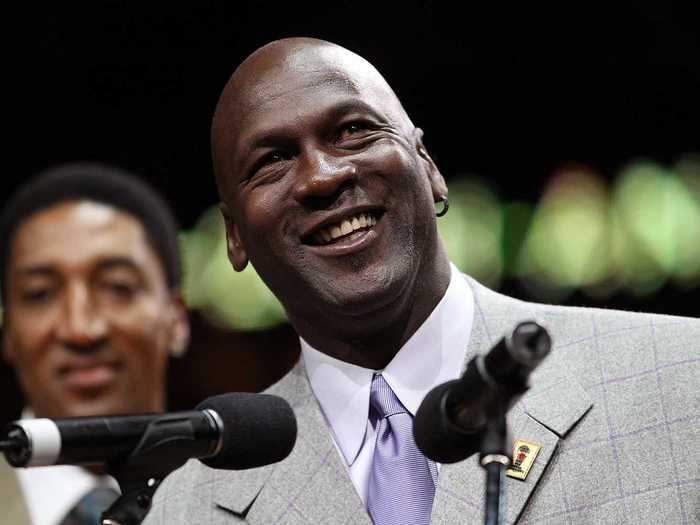
Decades of smart branding continued to pay dividends for Michael Jordan in the 2006 ad "Let Your Game Speak."
In a commercial aimed squarely at the collective memory of nostalgic hoops heads, viewers were treated to a series of clips showing children of various ages acting out Jordan's most replayed highlights (bonus points to the dude who NAILS the fist-pumping explosion that followed Jordan's buzzer-beater over Craig Ehlo in the '89 playoffs).
At the end, the ad cuts to Jordan at a playground looking on in approval as one of his disciples mimics the "Jordan Shrug."
My Better Is Better (2008)

Nike showcased a stars ranging from LaDanian Tomlinson to Steve Nash to sell its "My Better Is Better" campaign in 2008.
Saul Williams' thumping "List of Demands (Reparations)" powered a campaign that brought glory to the grit and exertion of athletic training.
It's hard not to get fired up after watching it.
MVPuppets Grab The Torch (2009)
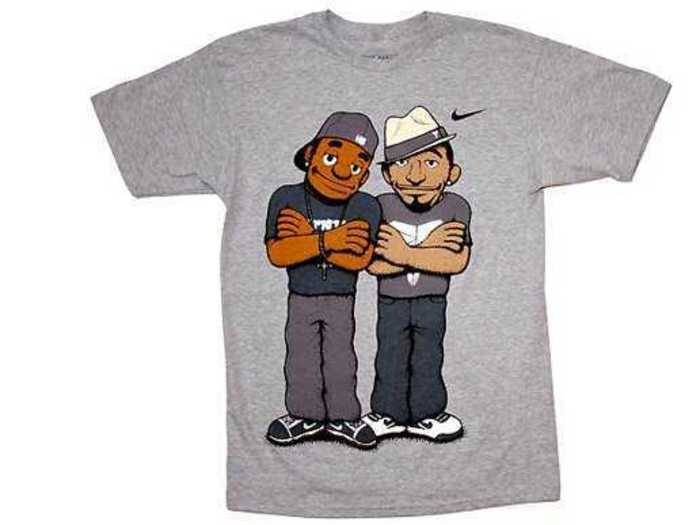
Following Michael Jordan's retirement, two new stars emerged as the NBA's best players, and both of them were Nike pitchmen.
Wieden+Kennedy went back to the puppet well in 2009 with ads featuring puppet versions of Kobe Bryant and LeBron James.
In one of the more memorable spots, Puppet Kobe teases Puppet LeBron about his lack of an NBA championship ring. These taunts would be made obsolete in 2012, when LeBron won the first of two straight titles with the Miami Heat.
Redemption Road (2009 and 2010)
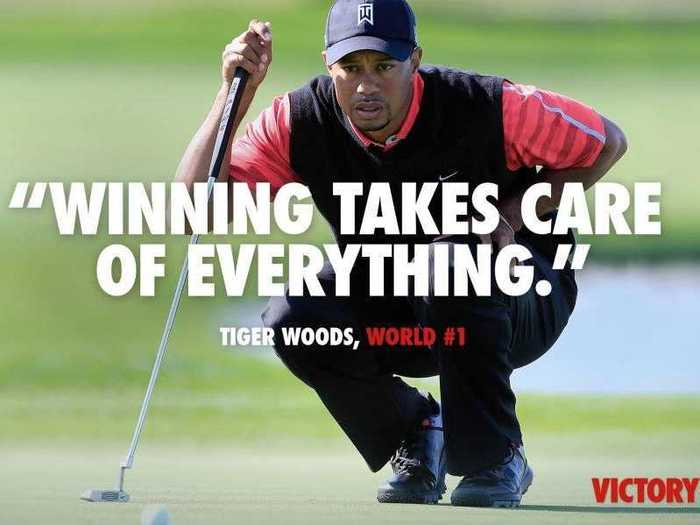
As brilliant as Nike has been in crafting the public personas of the athletes it uses, sometimes real life gets in the way.
In a one-year span, Nike saw two of its biggest stars, LeBron James and Kobe Bryant, take a hit in the eyes of the public.
For Woods, it was the infamous infidelity scandal that saw his status as a role model go down the tubes and for James, it was the nationally televised "Decision" to leave his hometown team for the Miami Heat that left many with a bad taste in their mouths.
In response, Nike made a pair of damage control ads to repair the images of its fallen stars. For Woods, the brand rolled out an ad that felt almost like a performance art piece, in which he stared at the camera in black-and-white as a tape of his deceased father asked if he learned anything.
For James, who'd never been packaged as squeaky clean as Woods and whose image was less seriously damaged, Nike produced an advertisement meant to show off James' sense of humor.
In both cases, the American public seemed ready to forgive, so long as the stars kept winning.
Find Your Greatness (2012)
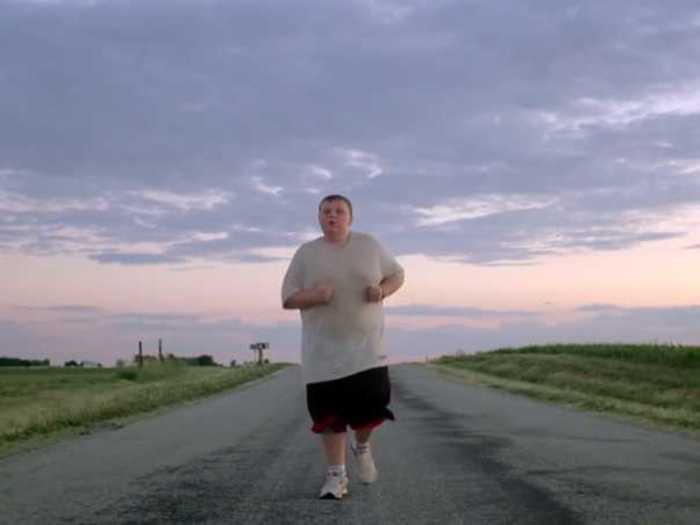
In a throwback to the original "Just Do It" ad, Nike's highly acclaimed "Find Your Greatness: Jogger" spot again played up the solitary runner pushing himself to the limit.
In it, an overweight boy trudges up along a remote road. As he jogs, a voiceover explains that "Greatness is no more unique to us than breathing. We're all capable of it."
You can have all the celebrity endorsers you want, but sometimes appealing to the average person trying to get in shape is just as effective.
25 Nike Ads That Shaped The Brand's History
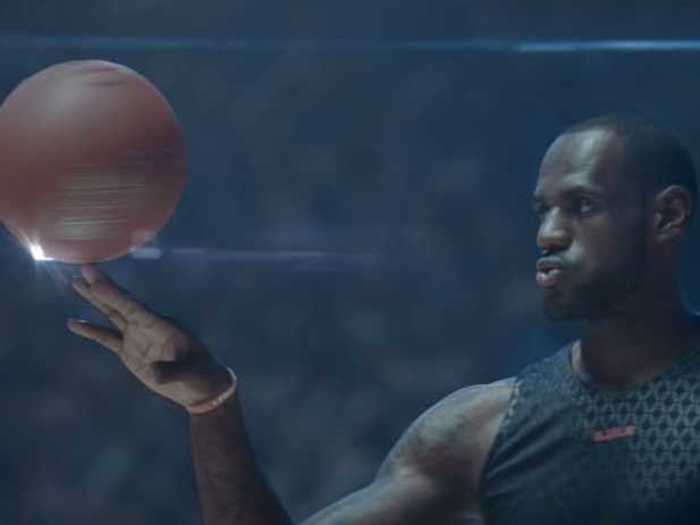
Nike celebrated the 25th anniversary of "Just Do It" with a huge viral success. The "Possibilities" ad, featuring several athletic superstars and a voiceover from Bradley Cooper generated more than 4 million views its first week online.
Shortly after, Nike was selected by a group of advertising executives as the brand they most wanted to work with for the second year in a row.
Watch as Cooper humorously challenges viewers to go toe-to-toe with the world's greatest athletes.
Now Take A Look At The 10 Biggest Advertisers In America
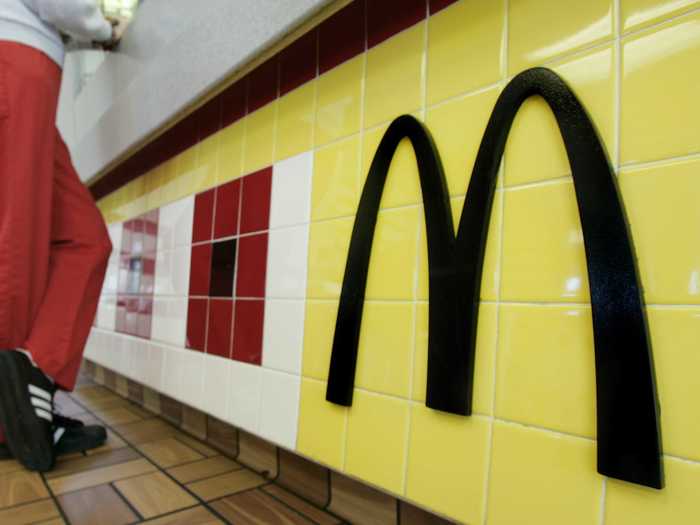
Popular Right Now
Popular Keywords
Advertisement